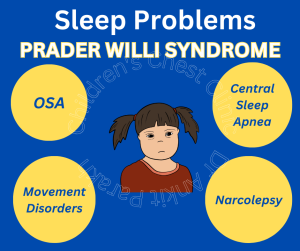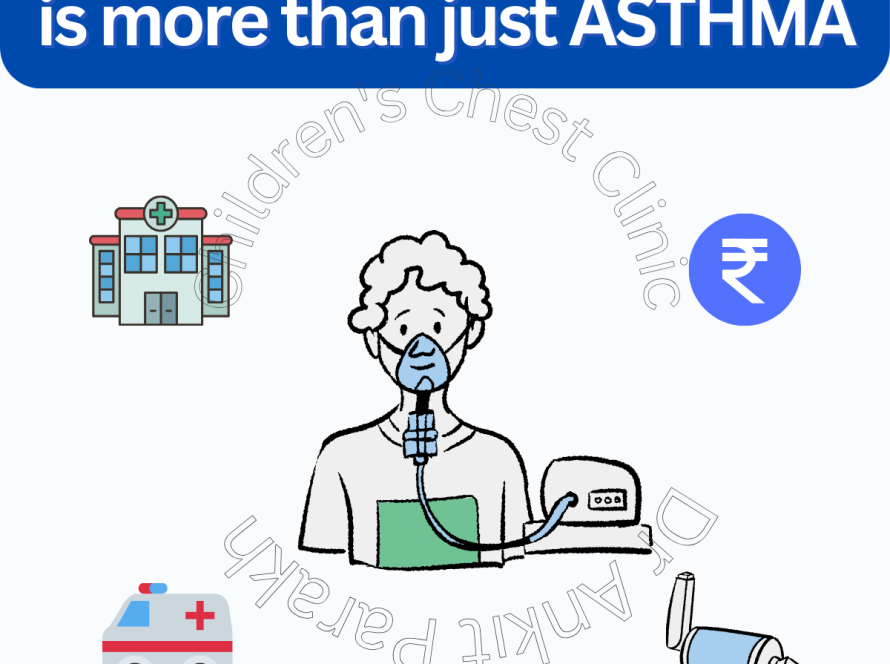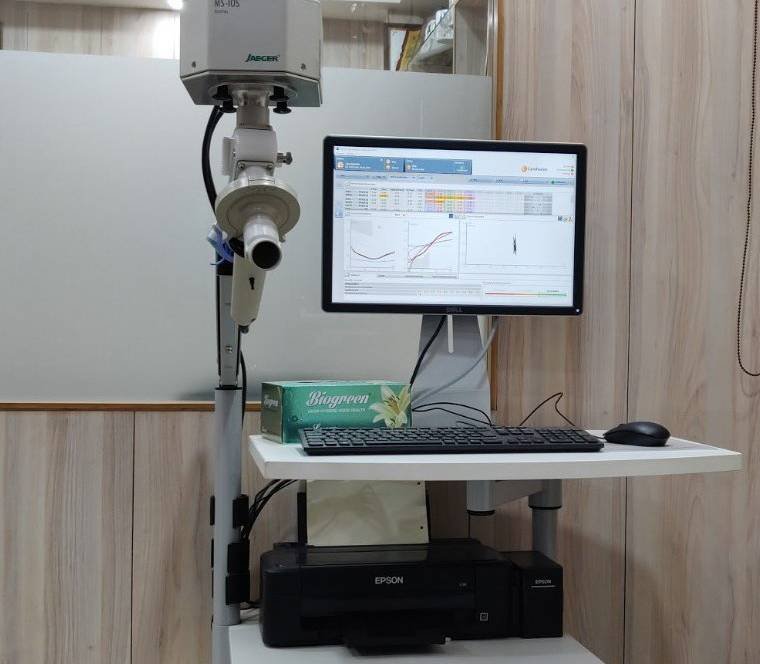Prader Willi Syndrome (PWS) is a genetic disorder that is caused by deletion of a part of chromosome 15, leading to loss of function related to this particular gene. In most cases of Prader Willi Syndrome (PWS) occurs when the deletion happens on the fathers chromosome. Some cases of Prader Willi Syndrome (PWS) deletion happens on both the mothers chromosomes. Prader Willi Syndrome (PWS) is usually not inherited and genetic changes occur as random events during the formation of reproductive cells. Children with Prader Willi Syndrome (PWS) usually have no affected person in the family.
Children with Prader Willi Syndrome (PWS) frequently have many types of sleep disorders. Early identification and treatment of these sleep disorders can substantially improve children’s health and quality of life. In this article we discuss various sleep problems which are seen in children who have Prader Willi Syndrome (PWS), how to make a diagnosis and how to treat these patients.

What are the common health problems in children with Prader Willi Syndrome (PWS) ?
Children with Prader Willi Syndrome (PWS) have weak muscle tone (hypotonia), feeding difficulties, poor growth, and delayed development. Children with Prader Willi Syndrome (PWS) in childhood develop extreme hunger leading to overweight and obesity. Intellectual impairment and learning disabilities are common in children with Prader Willi Syndrome (PWS). Behavioral problems such as temper outbursts, stubbornness, and compulsive behavior are common. Underdeveloped genitals, delayed puberty and infertility are usually seen in children with Prader Willi Syndrome (PWS).
What are the common sleep problems seen in children who have Prader Willi Syndrome (PWS) syndrome?
Children with Prader Willi Syndrome (PWS) can have a variety of sleep problems such as sleep related breathing problems, central sleep apneas, sleep related movement disorders and hypersomnolence narcolepsy. Children with Prader Willi Syndrome (PWS) have a very high incidence of having obstructive sleep apnea (OSA) up to the tune of 80%. There are many features which predisposes children to have obstructive sleep apnea. These include a narrow upper airway, a small jaw, reduced tone of the upper airway, weak breathing muscles and obesity. Children with Children with Prader Willi Syndrome (PWS) who have obstructive sleep apnea can often develop pulmonary hypertension.
Central sleep apnea is also commonly seen in children who have Children with Prader Willi Syndrome (PWS). Central sleep apnea is most commonly seen in infants and young children, but can also be seen in older children. Common sleep-related movement disorders seen in children with Prader Willi Syndrome (PWS) are periodic limb movement disorder (PLMD), restless leg syndrome (RLS) and bruxism. Excessive daytime sleepiness is very common in children with Prader Willi Syndrome (PWS). Excessive daytime sleepiness can be due to obstructive sleep apnea (OSA) as well as disorders of central hypersomnolence.
What are the recommendations to perform a sleep study or polysomnography in children with Prader Willi Syndrome (PWS)?
Since obstructive sleep apnea (OSA) is quite common in children with Prader Willi Syndrome (PWS) yearly sleep studies or polysomnography are recommended for early detection. Sleep study or or polysomnography is also recommended pre growth hormone therapy and post 3-6 m post therapy and later if symptoms of obstructive sleep apnea (OSA) reappear. Children with Prader Willi Syndrome (PWS) excessive daytime sleepiness requires a multiple sleep latency testing (MSLT).
How do we treat sleep problems in children with Prader Willi Syndrome (PWS)?
Treatment of various sleep disorders in children who have a Prader Willi Syndrome (PWS) needs to be individualised depending on the type of sleep problem. Obstructive sleep apnea or sleep disordered breathing requires CPAP therapy. Children with Prader Willi Syndrome (PWS) having central sleep apnea might require oxygen at night. Children who have excessive daytime sleepiness or narcolepsy require stimulant medicines to keep the child awake during the day.
If your child is having Prader Willi Syndrome (PWS), your child needs to be evaluated by a child pulmonologist and sleep specialist for proper evaluation and treatment.






